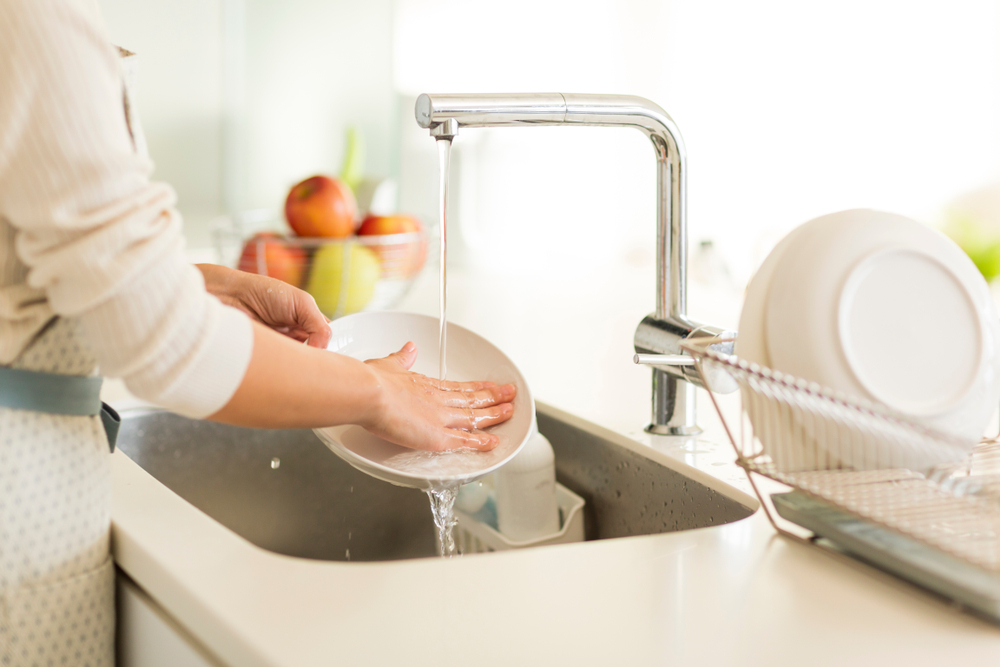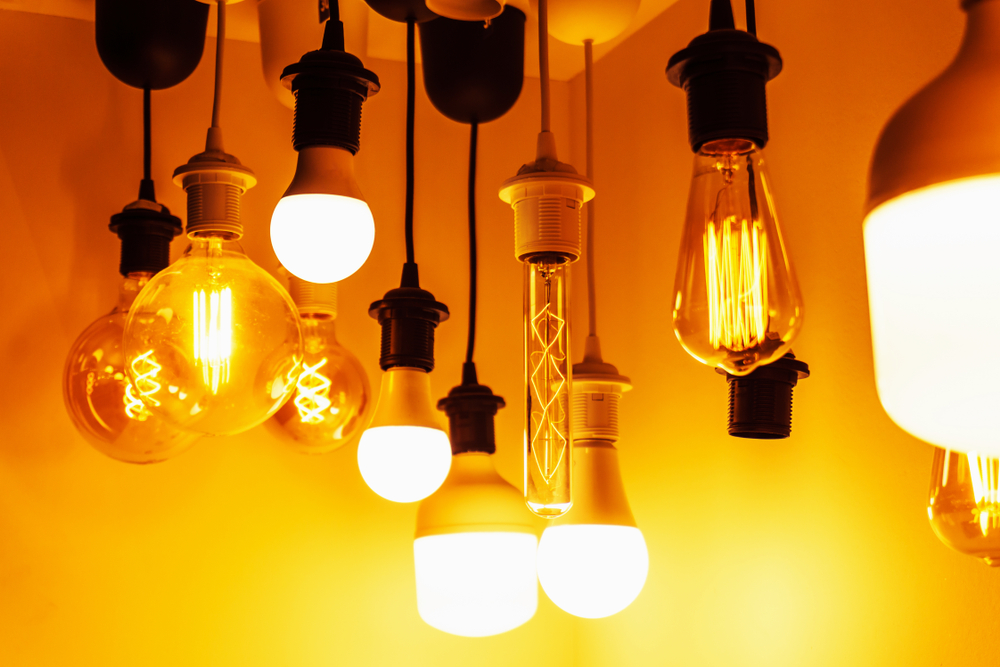These are a Few of the Biggest Energy-Efficiency Myths
There are many habits that homeowners can adopt to help them to lower their energy use and their monthly utility bills, too. However, there are a few tips that homeowners might be following in the name of energy efficiency that don’t necessarily help lower energy use.
These are a few of the biggest energy-efficiency myths per Constellation that could be zapping the monthly utility bills:
- Sleep mode is more efficient than shutting down the computer
- Hand washing dishes is better than using the dishwasher
- Ceiling fans help add coolness to a room
- Small portable heaters are more efficient than central heating
- Adjusting the thermostat doesn’t make a difference
The Myth of Sleep Mode
Homeowners might have heard that using sleep mode on computers is the most energy-efficient option. Does sleep mode still have a light indicator that remains illuminated? This small light is still using electricity.
While sleep mode is more efficient than leaving the computer on, the most efficient choice is to shutdown the computer. If no lights are illuminated, then no electricity is zapped.

Hand Washing Dishes vs. Using the Dishwasher
One load of dishes in the dishwasher costs, on average, about $0.20. Not really a budget breaker. However, according to stats in an article from the site Angi, hand washing the dishes uses anywhere from nine to 20 gallons of water per load; this compares to only 10 to 15 gallons for an older dishwasher and only 3.5 gallons with an energy-efficient model.
The dishwasher is by far the most efficient option; even older dishwashers are a more efficient way to clean dishes than washing them by hand.
Ceiling Fans Help Cool a Room
Ceiling fans don’t use much electricity. However, they aren’t the room savior that some might assume. Ceiling fans won’t necessarily increase the efficiency of the HVAC or make the room feel cooler.
However, during milder temperatures, using the ceiling fan could be a more efficient option than using the air conditioner. The heart of the myth related to a ceiling fan cools the room is that, as Constellation explains, fans cool humans not rooms. If the room isn’t being used, turn off the fan. Otherwise, it’s simply wasted energy.
Portable Heaters are a More Efficient Heating Option
Portable heaters are small, therefore, they should be more efficient. Unfortunately, they are not. Portable heaters or space heaters don’t qualify for the ENERGY STAR label. However, HVAC systems and furnaces can be energy efficient and feature the label.
In addition, portable heaters in every room are simply an inefficient way to add heat. Using a central system allows homeowners to set the home’s temperature to allow the most efficient heating or cooling.
Smart thermostats even link to an app that lets homeowners control the thermostat remotely. Homeowners can adjust the temperature remotely to maximize energy efficiency in the home.
Adjusting the Thermostat Doesn’t Impact Energy Use
Some homeowners might not think a few degrees on the thermostat makes much difference for energy use and costs. However, heating and cooling represents the dominant energy drain in the home.
According to the Department of Energy, the most efficient thermostat settings are 68 degrees Fahrenheit in the winter and 78 degrees Fahrenheit in the summer. Nudging the thermostat warmer in winter or cooler in summer will make the HVAC system work harder and will result in a higher bill for homeowners.

Other Energy Saving Tips
Homeowners who want to save energy in the home and lower their costs, too, can embrace a few other habits. Small changes around the home can save money over time. Here are seven simple ways to save more energy and money:
- Swap out light bulbs for LED. These energy-efficient bulbs don’t emit as much heat and can last for years.
- Turn off lights when leaving a room. If homeowners don’t need the illumination from the light, turn it off. Leaving lights on unnecessarily just adds to the utility bill.
- Choose energy-efficient appliances. Many appliances bear the ENERGY STAR label and use less energy than standard models. When an appliance needs to be replaced, upgrade to an energy-efficient model.
- Unplug unused gadgets and appliances. If the coffee maker has a digital clock, it’s using energy even when it isn’t brewing. Unplug appliances that aren’t being used. Check outlets for device cords that might be draining energy, too.
- Don’t leave the water running. When brushing teeth, turn off the water until it’s necessary to use it. A flowing faucet is water down the drain.
- Wash full loads of laundry and dishes. Half-loads are an inefficient use of the appliance.
- Don’t double-dry clothes. Restarting the dryer to dewrinkle a load of laundry is a waste of energy. Remove clothes promptly.
While there are numerous tips that can help homeowners decrease their energy use and save money on their utility costs, some tips are mere myths. Understand the best ways to embrace energy efficiency and break up with bad habits that also could be contributing to energy waste and higher utility bills.


